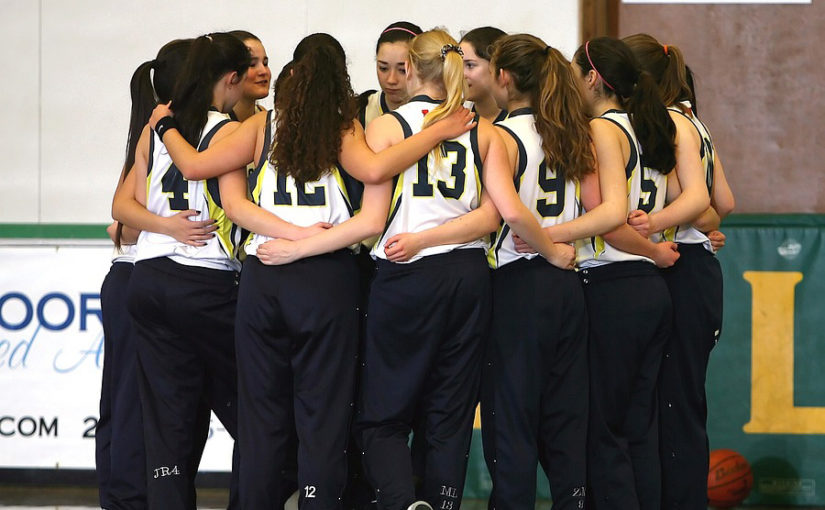A.D.ministration: Principles for negotiating and mediating
When one hears the word negotiations, it’s commonly assumed that it’s being used in connection with salaries and benefits.
 While athletic directors may put together recommendations for the coach’s salary scales, this responsibility usually belongs to the teacher association’s negotiating team and the school board.
While athletic directors may put together recommendations for the coach’s salary scales, this responsibility usually belongs to the teacher association’s negotiating team and the school board.
You may be surprised how often you’re called upon to serve as a third-party mediator.
Have you ever thought about whom you may have to negotiate with or to serve as a mediator? The following is a list of individuals you deal with on a regular basis and who may be involved with negotiations.
- Coaches who may be at odds with each other over any number of issues.
- Parents who disagree with a coach.
- Fellow athletic directors during the scheduling process for next year.
- Principals concerning the budget and future working conditions.
- Committee members dealing with league or state association agenda items.
Since negotiations are an integral part of your responsibilities, how can you do a better job with it? That’s easy. Following are 11 principles of negotiation and mediating that should provide you with a good basis for your efforts.
Principles for negotiations and mediating
1. Understand that one of the basic principles of negotiations is that you may have to give a little to get a little. Very seldom will you get exactly what you are shooting for. In a word, it’s all about compromise.
2. Ask for more than you want so that you actually have something to give back. This is a fairly common technique in negotiations. When both sides understand this stance, the really substantive negotiations may take a while to get started and may even require additional meetings.
3. Develop your listening skills. You learn much more by listening carefully rather than planning what you are going to say next. While processing what’s being presented, ask a question if you aren’t sure of a detail or particular aspect. Complete comprehension is vital to finding solutions.
4. Treat the other party with respect and courtesy, even if you totally disagree with their point of view or position. Emotions, particularly negative or inflamed, can limit the ability to focus and employ logic and reason.
5. Prepare for every session. You never want to be caught off-guard. Without having the necessary statistics, information or documents at hand, you may concede more or demand less than you should. Lack of preparation can greatly affect the final outcome.
6. Consult with experts if you lack the particular background that may be needed. We can’t be expected to know everything, but we can ask for and get help. Don’t forget to check with other ADs, because they may have gone through a similar situation.
7. Be guarded with your comments and don’t say more than what may be needed during face-to-face discussions. You don’t want to tip your next step or your final position on the issue.
» RELATED: Tips for conducting effective, efficient meetings
8. Understand that counter-proposals are part of the process. This is particularly true when you deal with complicated problems. Both parties may need a break from face-to-face discussions to huddle with their group in order to plan their next offer.
9. Create a feeling that everyone gained something. When one party feels that they lost and the other feels triumphant, you are only planting the seeds of discontent and future problems. Successful negotiations should be a win-win for both parties or, at least, it shouldn’t be a win-loss.
10. Serve as a mediator when asked or in anticipation of difficult stalemates. Being a facilitator to the negotiations might simply mean listening and providing a non-vested point of view, or helping each party understand each other’s stance. For more involved negotiations, you might have to offer creative possibilities in order to stimulate thought, discussion and a solution.
11. Approach the mediator’s position from a neutral stance. If either side feels that you favor the other, your role is compromised from the start. Both parties need to trust and feel that you are fair.
With a little understanding and practice, your negotiating and mediating skills can improve like most other things we do in our positions. Since negotiations may help solve problems between individuals associated with our programs, this is an extremely important to your job.
David Hoch, CMAA, has 16 years of experience as a high school athletic director and served for 12 years as the executive director of the Maryland State Coaches Association. In 2000, he was named Athletic Director of the Year by the Maryland State Athletic Directors Association. His column, A.D.ministration, focuses on issues in athletic administration and appears regularly in Coach & Athletic Director magazine.





